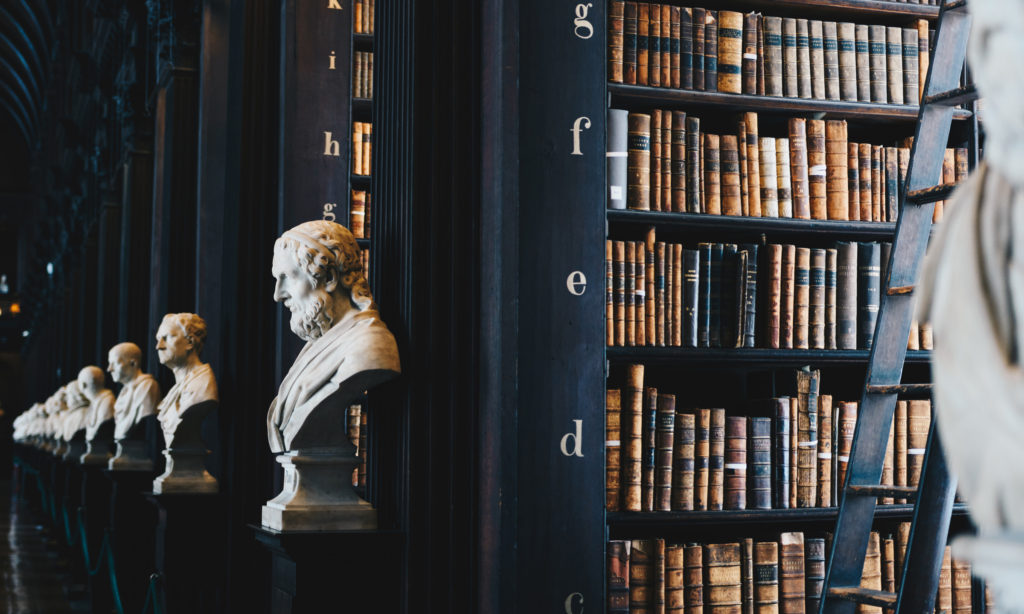
Finding the life we want by embracing minimalism isn’t about giving up everything. Nor is it about holding on to everything and just trying to organize it better. Instead, it’s about reducing the number of our possessions to a level that sets us free.
Minimalism isn’t about owning less just for the sake of owning less. It’s about owning just the right amount of anything (and everything).
I have always found it important that the wisdom of the ages agree on the value of this approach to living. And the value of this approach to living may be as important today as ever.
12 years ago, when my wife and I began minimizing our home and removing the nonessentials, I would often remark to her, “This is fantastic. Owning less stuff is so freeing! I wonder why nobody ever told me about this before?”
Before long, though, I started to catch myself. Was it really that nobody had ever told me about minimalism before? Or was it that I just wasn’t listening?
In my head, I began recounting the mentors I had heard who spoke about the spiritual dangers of materialism. And beyond that, throughout my life, I had read and heard dozens of challenges to reject the empty promises of consumerism and follow a way based on higher values, not to mention all the financial advice about not overspending your means.
I began to do research and discovered that minimalism is not a new movement at all. Whether specifically labeled as minimalism or not, it has been practiced and encouraged for thousands of years—since well before our current society of mass-produced goods, well before suburbanization, and even well before the Industrial Revolution.
Under all kinds of economic conditions, minimalism has been promoted as a rewarding way of life. In good times and bad, people have encouraged the pursuit of minimalism.
Today, we recognize some of the people in recent centuries who have encouraged this approach to life, including Henry David Thoreau and John Ruskin. I even hear them referred to as the “fathers of the minimalist movement.” But minimalism predates all of them—by a long shot. The minimalist lifestyle may be gaining in popularity today, but it is the furthest thing from new.
Duane Elgin, who is often credited with bringing the phrase voluntary simplicity into the public discourse, said it to me like this: “I tell people that I’m the great-great-great-great-great-grandson of this movement that got started a couple of thousand years ago with the teachings of Jesus, Buddha, and other great sages who understood the value of simplicity. What is new is not the value of simplicity but rather the conditions of the world where it is understood.”
Living with less has always been freeing and life giving, filling people with hope and purpose. It has enabled human beings to expand in spirit and to live as more than mere accumulators of possessions. And therefore, minimalism is not a brand-new approach to life invented as a response to our overproduction of consumer goods. Quite the contrary. Our most trusted moral leaders have promoted it for centuries.
It is a historically important movement. And it is as important today as it’s ever been.
from Becoming Minimalist https://ift.tt/2XG6AkM
Aucun commentaire:
Enregistrer un commentaire